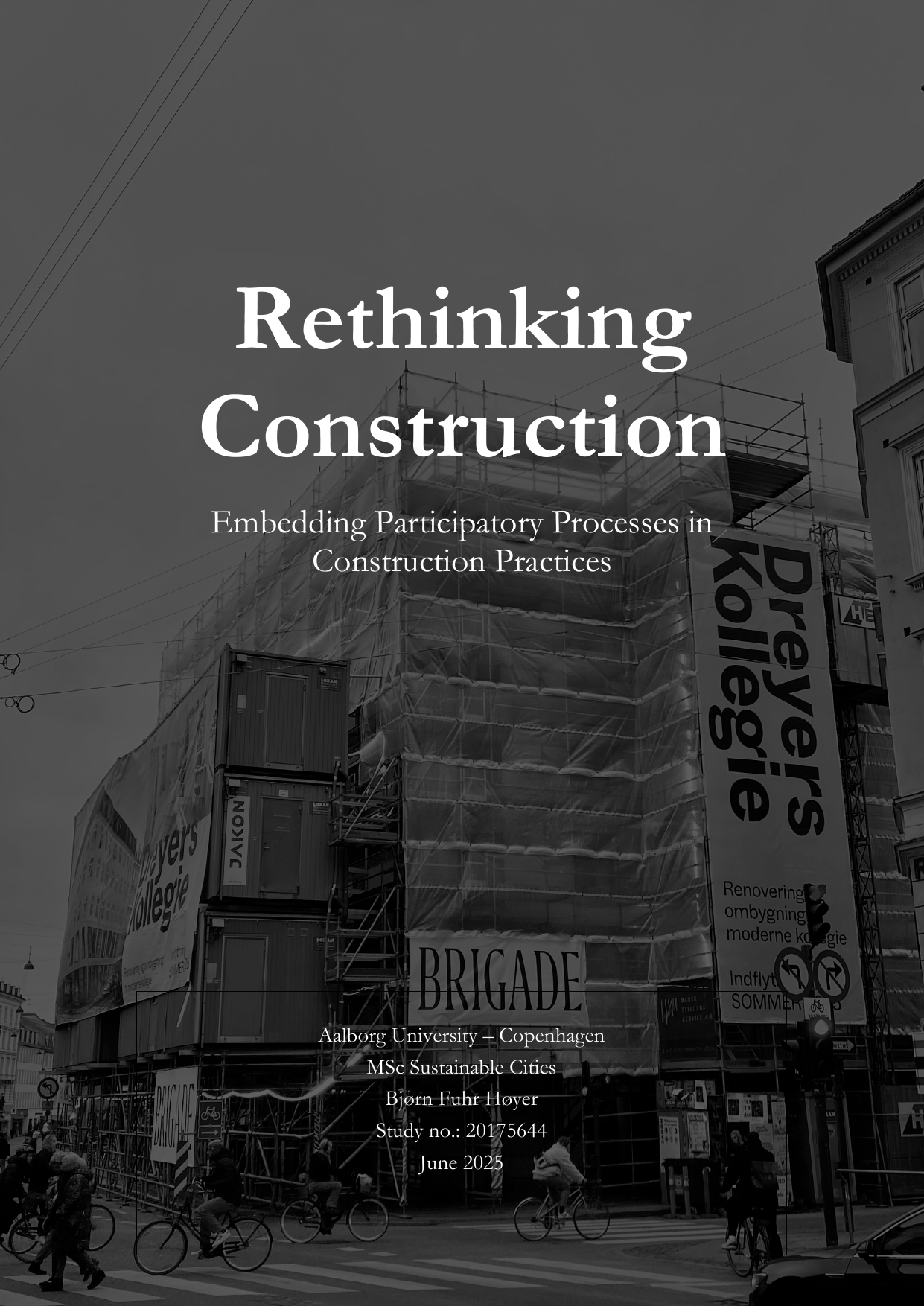
Rethinking Construction - Embedding Participatory Processes in Construction Practices
Author
Term
4. term
Education
Publication year
2025
Submitted on
2025-06-13
Pages
85
Abstract
The construction industry is under growing pressure to support sustainable development, yet conventional construction processes are shaped by complex technical requirements, rigid linear workflow, short-term economic interests, limited stakeholder participation, and insufficient consideration of social aspects and user needs. This report explores how participatory processes can be integrated into construction practices and contribute to social sustainability in buildings through a case-study of Dreyers Kollegie in Copenhagen and Håndværkskollegiet in Roskilde. In both cases, the consultancy company Hele Landet facilitated comprehensive participatory processes to align project outcomes with needs of the users and the surrounding society. The theoretical framework consists of Actor-Network Theory and Susan Leigh Star’s concepts of standardization and conventions. Through this analytical lens, the report examines how Hele Landet’s participatory processes challenge conventional construction processes through roles, negotiations, and translation processes, and explores ways to address these challenges. The findings show that interviewees recognize that participatory processes improve project outcomes and generate social value. However, integration of participatory processes faces challenges of standardized practices, economic efficiency, schedule pressure, technical focus, quantitative metrics, and conventions of construction phases. Consequently, social value is deprioritized, and participatory processes are sidelined. The report reveals that current construction processes lack formal mechanisms to ensure that participatory processes are prioritized throughout the construction process, which risks a social performance gap. As response, the report further identifies various strategies to meet these challenges and stabilize and institutionalize participatory processes, including embedding into metrics, well- designed facilitation, widespread communication of the value, structural backing through regulation, pilot projects, early establishing of participatory processes. These strategies enable reframed conventions and support embedding of participatory processes into construction processes. Thus, this report contributes to the call for further studies on socially responsive construction practices.
Keywords
Construction ; rethinking ; participatory ; processes ; conventional ; linear ; industry ; economic ; sustainable ; social ; value ; socially ; integrate
Documents
